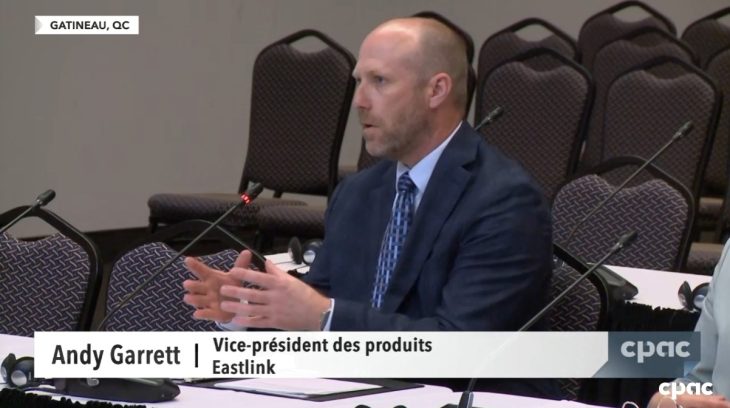
By Ahmad Hathout
An Eastlink executive said Wednesday that the company has experienced challenges getting large streaming platforms to do deals with a smaller distributor like itself, as more Canadians seek bundles with both linear and online options.
“It is extremely key,” Andy Garrett, vice president of product management, said about being able to do package deals with big streamers like Netflix and Apple TV. “I know a lot of the larger streamers are looking for or wanting to do business with a large provider. So they would typically say that we’re too small and we’re not worth their time.
“Not being able to access and to package that content together will be a gap as we continue to move forward.”
Eastlink has a third-party product called TiVo Stream that, similar to the Roku, allows users to individually subscribe to apps including Netflix, Amazon Prime Video and domestic services like Bell’s Crave and Rogers’s Sportsnet.
But Eastlink said it has struggled with getting these large streamers to agree to a deal where it can resell or package that desirable content with its linear services to make a better value propositions to subscribers.
By contrast, Telus and Bell, two much larger BDUs, have been making bundles out of these streaming services. Earlier this month, Bell announced a new streaming package that combines its Crave and TSN services with Disney+, making it cheaper to purchase them together than to do so separately. And last year, Telus launched variations on a bundle that combines Netflix, Disney+ and Prime Video.
Telus called this package a “disrupter” in the Canadian entertainment market.
When the vertically integrated (VI) operators start packaging those bundles with their internet and mobile phone services, things get really tricky for smaller folks like Eastlink, the company conveyed.
“The challenge we have with the vertically integrated guys are they potentially are better off if they don’t do a deal with us,” Lee Bragg, the company’s executive vice chair, said Wednesday, speaking about the Wholesale Code from 2015.
“Because then they have their content in that marketplace that they can bundle with high-speed internet, cellular and move all the customers onto their platform for the other products. So their benefit is to not do a deal as opposed to do a deal. And that creates some challenging dynamics, which we need to make sure that, through the Wholesale Code, there are not incentives to not do deals as opposed to try to get a deal.”
Eastlink is proposing, among other things, that the CRTC prohibit VI programmers from withholding their services from independent BDUs to “incent them to negotiate in good faith with rival BDUs and protect the integrity of the Commission’s dispute resolution mechanisms.”
It is also asking for the commission to publish benchmark cost data that will “eliminate independent BDUs’ informational disadvantage regarding a key fair market value factor and streamline negotiations between VI programmers and independent BDUs” and to prevent programmers from charging distributors wholesale rates that “exceed the retail rates they charge consumers for the same content online.”
Screenshot of Andy Garrett, Eastlink’s vice president of product management, on Wednesday


